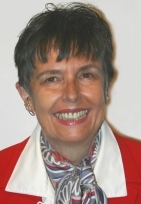It’s an extraordinary privilege to present the tenth installment in this series of interviews with some of the gurus of both performance and applied storytelling. This interview is with Stephanie West Allen. I encountered Stephanie through her many valuable contributions to the Working Stories online discussion group — and am especially grateful for the many, many suggestions she’s made of story-related material to blog about here. Learn more about Stephanie under her photo.
Stephanie’s bio (from the About Me page of her blog, Idealawg):
Stephanie West Allen, JD, practiced law in California for several years, held offices in local bar associations, and wrote chapters for California Continuing Education of the Bar. While in CA, Stephanie completed several five-day mediation training programs with the Center for Mediation in Law, as well as a two-year intensive with Center co-founder Gary Friedman. She has been a mediator for over two and one-half decades.
She is the author of Creating Your Own Funeral or Memorial Service: A Workbook and many articles on workplace and professional issues for such publications as Lawyer Hiring and Training Report, Colorado Nurse, The Complete Lawyer, National Law Journal, Of Counsel, Law Practice and Denver Business Journal.
Stephanie writes “The Human Factor,” a column on alternative dispute resolution for The Complete Lawyer. The column is written with three other lawyer-mediators.
She has coauthored a number of articles with Dr. Jeffrey M. Schwartz.
She has designed and taught courses at such institutions as Hastings College of the Law, University of Colorado-Denver, and Regis University (Denver).
Stephanie has developed a ground-breaking mediation model that utilizes the latest findings in neuroscience to facilitate resolution of conflict.
She is certified to administer and interpret the Highlands Assessment Battery and uses this tool with both individuals and groups in the areas of business development, client relations, and team development.
Her two blogs are idealawg and Brains On Purpose™.
Q&A with Stephanie West Allen:
Q: How did you initially become involved with story/storytelling/narrative?
What attracted you to this field? What do you love about it?
A: I first became a big proponent of storytelling when I became a mediator decades ago. I saw the power of telling one’s story and hearing the stories of others in resolving disputes. To me, storytelling is a critical part of any effective and lasting conflict resolution. I have seen the “magic” of the telling and hearing too many times to not be convinced of story’s integral role in creating collaboration and cooperation. Plus I am lucky to have two friends who are both non-practicing lawyers and storytellers; listening to them has also shown me story’s essential role in the practice of law, whether in alternative dispute resolution or the adversarial process.
Q: How important is it to you and your work to function within the framework of a particular definition of “story?” (i.e., What is a story?) What definition do you espouse?
A: I don’t really have a definition. It is the flesh on the skeleton of the conflict. The meat; the heart; the blood, sweat, and tears. How did each of us get here? Where do we want to go now? The paths we have taken and the roads we want to follow.
Q: If you could identify a person or organization who desperately needs to tell a better story, who or what would it be?
A: I think the generations need to tell each other their stories. I saw a speaker, Morris Massey, tell the story of each living generation a few years back, and it was marvelous. What each childhood and later stages of life were like, the concerns and cares, the delights and beliefs, the music and food, a complete picture. I will never forget the presentation and the resulting understanding. At the end, we all sang “Teach Your Children”and in the room, there were few dry eyes.
Q: Are there any current uses of storytelling that repel you or that you feel are inappropriate?
A: Many that don’t come from the heart. When you ask yourself, “Wonder what book on storytelling he/she read to prepare this?” Lots of the stories the stories used by motivational speakers. Stories that lead with the desire to manipulate. Getting someone to do something is often a good time for a story but if that is the only motivation and the teller lacks the connection factor, I tune — or walk out.
Q: How did you get interested in writing Creating Your Own Funeral or Memorial Service: A Workbook? Does the book advocate storytelling? Does it include any stories?
A: I wrote the book after I saw a close friend try to figure out what his mother would have wanted for her memorial service. He was grieving and had to guess. I thought it would be a nice gift if people would leave behind their wishes. Back then in 1998, the concept of designing your own end-of-life event was odd. Now not a week goes by that I don’t hear or read about people doing this creating. The boomers change any ritual they encounter from wedding to births to, now, the last ritual. There are no stories in the book, but there is a section on life storytelling and its importance to one’s memorial service and legacy.
One last rambling musing: I notice that these days people are holding memorial services for their pets. For a while, I have been thinking it would be fun to teach a course on writing your pet’s life story just as I have taught life story writing in the past. Why not? Animals have stories, too, but can’t tell them. I guess I think the stories of all things are important. Maybe I will write the stories of my plants; they have seen a lot. Now if my car could talk . . . I will have to write its story, too. Fun ideas, hmmm? But springing from how deeply I honor and value story as part of a thing’s or being’s existence.
